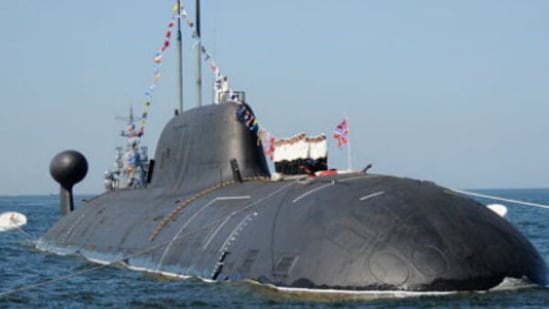PM Modi to discuss maritime security as Indian Navy set to enhance its sea-power
With Russian President Vladimir Putin and US Secretary of State Antony Blinken expected to join the maritime security debate at the UNSC, a global perspective will be shaped today for better and environment friendly management of oceans.
As Prime Minister Narendra Modi today chairs a UN Security Council debate on maritime security, India is all set to enhance its blue water Navy status by commissioning indigenous aircraft carrier INS Vikrant, strategic ballistic missile submarine INS Arighat and latest guided missile destroyer INS Visakhapatnam in its 75th year of independence.

INS Visakhapatnam will be commissioned into Indian Navy by November this year, INS Arighat with a more efficient nuclear engine and potent long range missiles is all set to be commissioned into India’s strategic forces next year with INS Vikrant to be commissioned by August 15, 2022. As a force multiplier, the Indian Navy will be soon approaching the Defence Acquisition Council for clearance of six more diesel attack submarines under Project 75I.
Apart from strengthening the Indian Navy, India is guided by PM Modi’s vision of Security and Growth for All in the Tegion (SAGAR) for cooperative and sustainable use of the oceans with a foundation built on safe, secure and stable maritime domain in the region. It is in this context that India is a very active player in Regional Cooperation Agreement on Combating Piracy and Army Robbery against ships (ReCAAP) in Asia.
The Indian Navy also keeps in sync with the foreign policy by participating in cooperative manoeuvres and exercise with major maritime powers and littoral states in the Indo-Pacific. From August 24, the Quad navies will be participating in Malabar exercises off the coast of Guam in far Pacific with focus on interoperability and capability to counter any unilateral domination of the Indo-Pacific. The Indian maritime approach is very internationalist and based on UNCLOS, which is the basis for freedom of navigation and open sea lanes of communication bereft of any artificial boundaries like the nine- dash line imposed by Beijing on South China Sea.
Just as India's vision of maritime cooperation is anchored in SAGAR, it is strengthening its own maritime security by development of Andamans and Nicobar Islands and the Lakshwadeep Islands, which dominate the major shipping lanes and trade routes from the Gulf to countries beyond Malacca Straits. Besides, it is also building deep seaports like Vadhavan in Maharashtra and Paradeep Outer in Odisha apart from enhancing capacities and operational efficiency of 12 major ports at the cost of ₹58884 crores under the SAGARMALA scheme.
With Russian President Vladimir Putin and US Secretary of State Antony Blinken expected to join the maritime security debate at the UNSC, a global perspective will be shaped today for better and environment friendly management of oceans with all the major powers contributing to the cooperative mechanism in Indo-Pacific and beyond.
Get Current Updates on India News, Lok Sabha Election 2024 live, Elections 2024, Election 2024 Date along with Latest News and Top Headlines from India and around the world.




